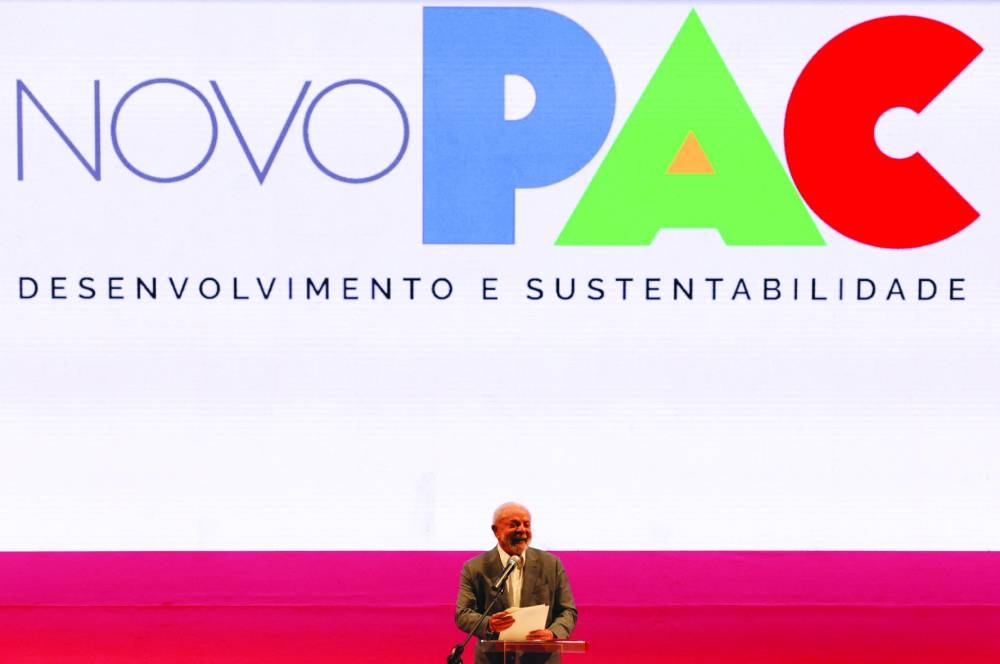Brazilian President Luiz Inacio Lula da Silva has announced the relaunch of a major $348bn infrastructure investment programme, saying that he hopes it will help Latin America’s biggest economy get back on the path to growth.
Projects under the public-private Growth Acceleration Pact (PAC) will target energy, road construction, access to water and sewage, healthcare, Internet access and education.
“Our country needs credibility, stability and predictability, and this program provides these three ingredients,” the leftist Lula said as he presented the PAC in Rio de Janeiro.
“I am sure that with the new programme, the country will return to growth and take the correct path,” Lula said, adding that “all the capacity of the state” will be employed.
“Today my government begins. Until now, what we have done was to repair what had been damaged,” he said.
Previous versions of the programme, in 2007 and 2010 during Lula’s first and second terms (2003-2010), had mixed success since a number of planned projects had to be stopped due to lack of financing.
The government now plans to invest 1.3tn reais (about $265bn) until the end of Lula’s four-year term in 2026, and an additional $83bn thereafter.
Nearly one-third of the announced investments are to come from partnerships with the private sector and one-fifth from funds provided by public companies, such as oil giant Petrobras.
Lula said respect for the environment remained one of his top priorities.
“We have a great opportunity to become the world’s great sustainable power, and the PAC will help with this. More than 80% of the energy (needed for the planned work) is clean,” he said.
One of the priorities of the new PAC is to resume work on projects that were halted due to lack of financing.
The largest investment is planned in the construction sector (about $125bn), of which more than half will go to financing social housing for the Minha Casa Minha Vida programme, a flagship programme of Lula’s previous terms in office.
For the funds to be released, the government needs final approval from Congress of the new “fiscal framework”, a law that replaces the spending cap in place since 2016 and designed to keep free-spending governments in check.

Lula during the launch ceremony of Growth Acceleration Programme (PAC) at Rio de Janeiro’s Municipal Theatre.
